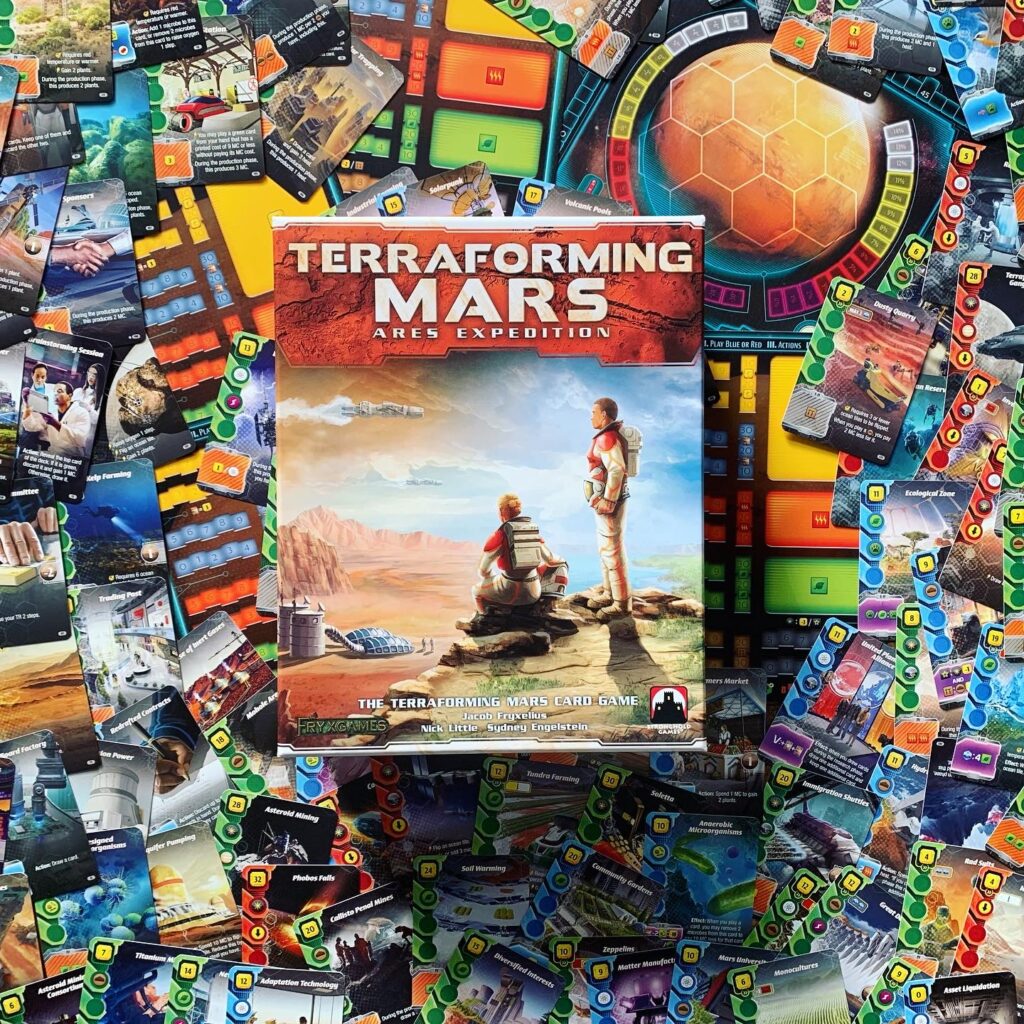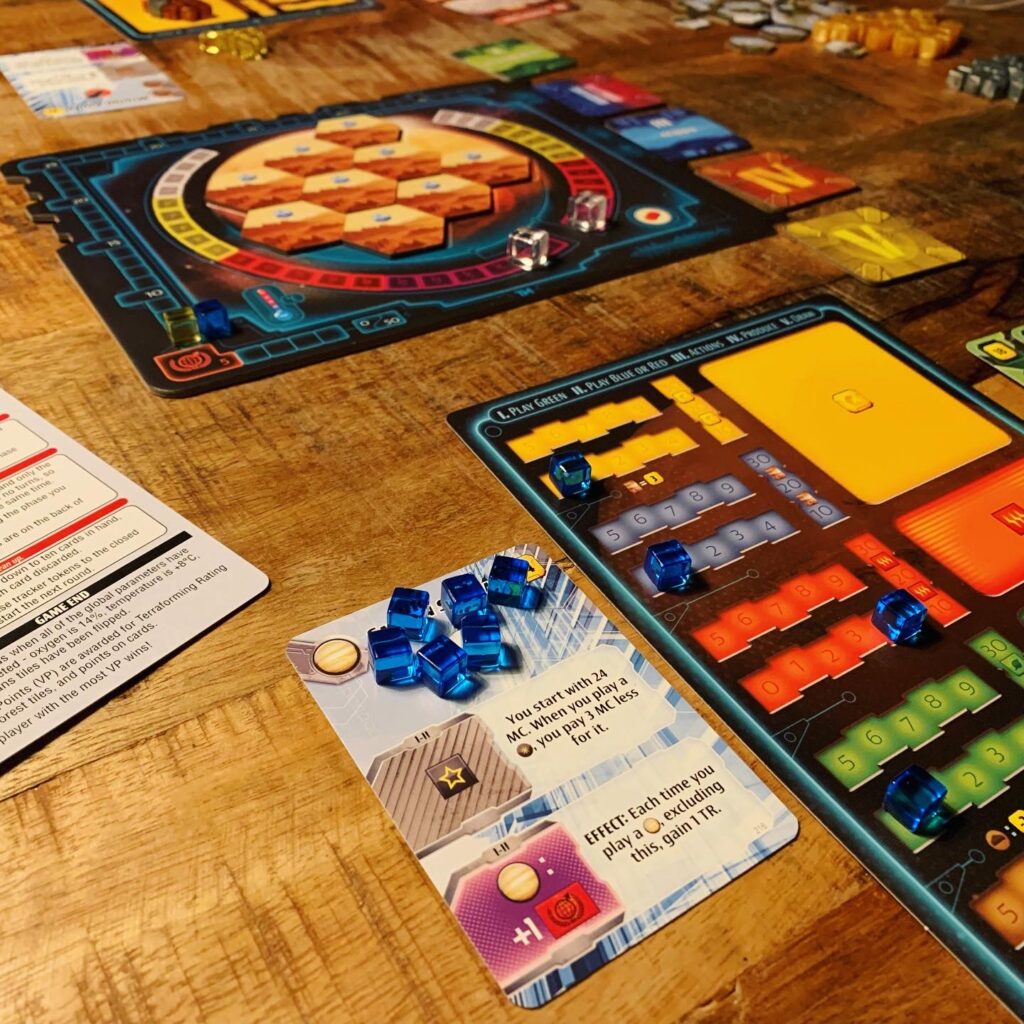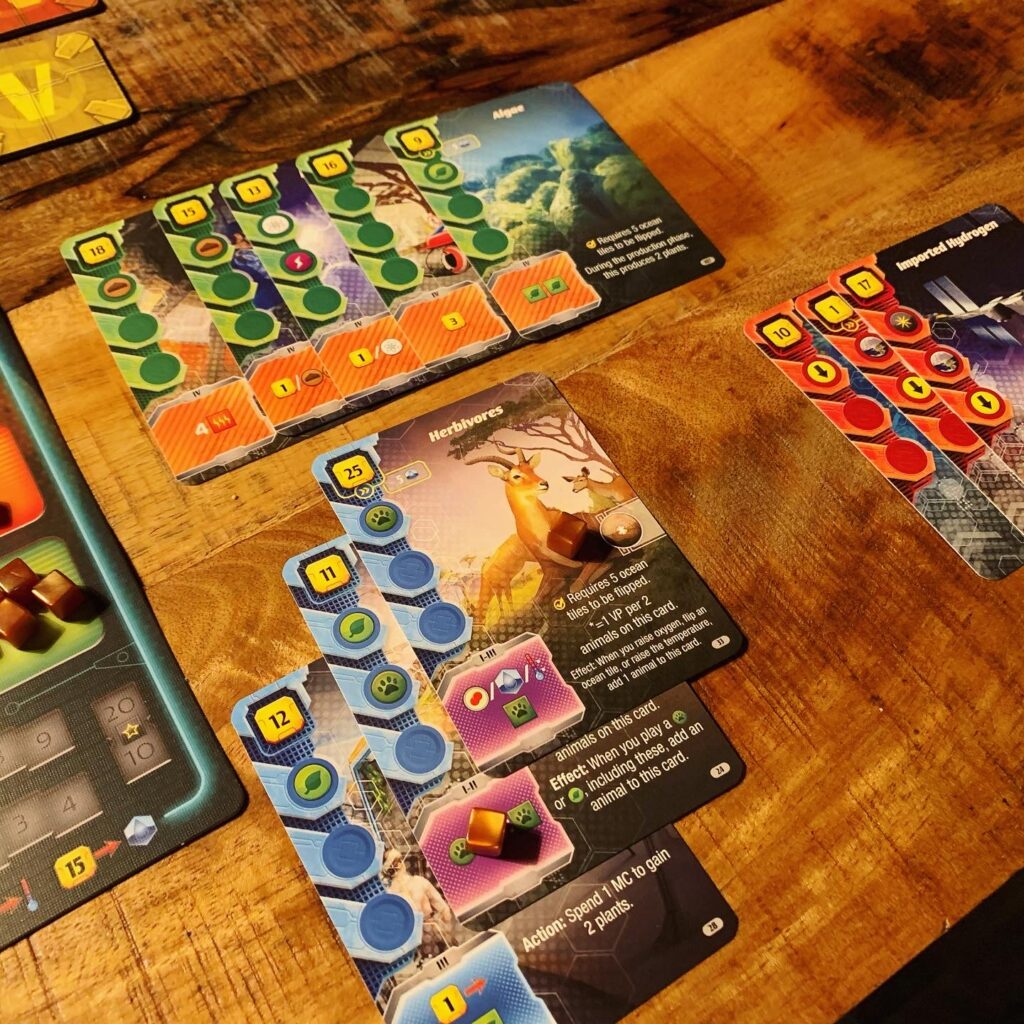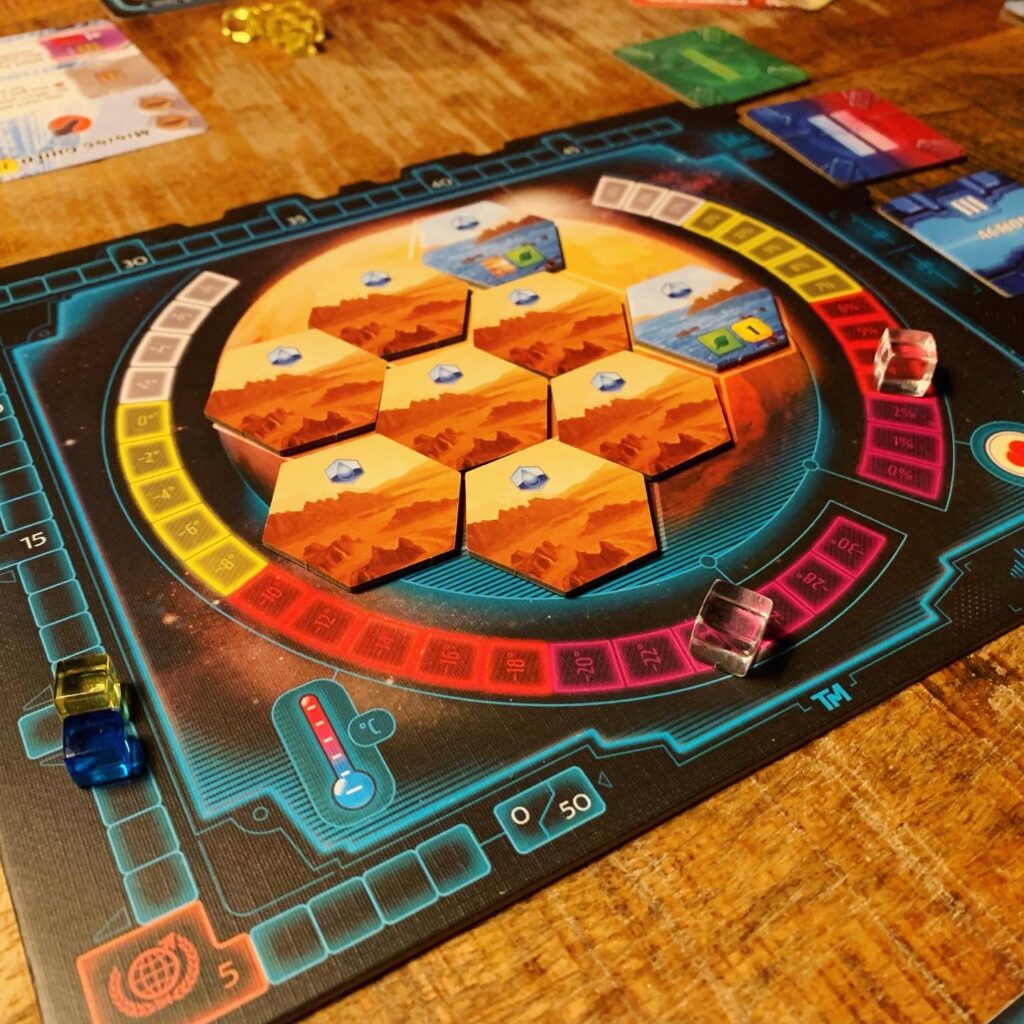For a long time, we have been asking ourselves the question: is life on Mars (possible)? In science fiction, there is a whole separate sub-genre in which the earth perishes by our own hand. Think climate change, raw materials being exhausted by mankind and nuclear war… Wait, that science “fiction” starts to sound less and less like fiction… Because mankind takes things for granted, there is a need to look for an alternative “living” space in space. Finding a nice spot in the inexhaustible universe appears to be almost as difficult as finding a house for sale for first-time buyers on the Dutch housing market. Perhaps Mars is an alternative to a property in the centre of Amsterdam? Mars is a pretty classy place, so we need to make it livable first, and that’s exactly what players will do in Terraforming Mars: Ares Expedition. Will you manage to grow potatoes just like the main character in The Martian or will your lack of oxygen be breathtaking?

Goal
Terraforming Mars: Ares Expedition is the little brother of Terraforming Mars, one of the most popular expert games, pinnacle of engine building and lesson in bad graphic design. Just like in its big brother, in Ares Expedition you and your fellow players will terraform Mars into a liveable planet. You are going to increase the oxygen values, make the temperature pleasant and create literal and figurative oceans of water. The game is over as soon as there is enough oxygen, heat and water. The player with the most victory points wins the game.

How to play
Each round takes place in different phases. Players can:
- build green cards;
- build red or blue cards
- perform actions
- produce resources; and
- do research and draw new cards.
Playing cards costs credits – you can earn discounts. Building green cards often allows players to get more resources in the production phase. Red cards usually involve initiating direct actions and blue cards have effects or actions that can be activated, for example, during the action phase. Cards sometimes also contain victory points or possibilities to gain victory points. With actions, players can perform actions on cards or general actions to, for example, discover oceans, increase oxygen and collect resources or money. During the production phase, players receive more money, cards and resources based on cards they have played. With research, players can draw new cards.
The twist in playing the phases is that not every phase takes place every round. At the beginning of a round, all players secretly choose a phase to play this round. Players may not choose the same phase they already chose the previous round. All players now turn over their chosen phases and these are the phases that all players may perform this round. If two or more players chose the same phase, it does not mean that this phase will be completed twice, but it does mean that there will be fewer phases to complete this round. Players who chose a phase also get a bonus during the chosen phase.

Verdict
I really like the idea of choosing phases. It increases the interaction between players very much. By choosing certain phases, you can give other players a hard time. For example, you can see that your opponents have no money or cards and therefore cannot play cards during phases 1 and 2. In addition, by choosing certain phases, you can unintentionally help your fellow players along. So consider carefully which phase will help you the most, but also which phase will benefit your opponent the least.
Ares Expedition is also a wonderful engine builder. I feel it plays very smoothly and intuitively. It is not a short card game, but it is certainly not annoyingly long. Because everyone is pumping oxygen, heat and water into Mars, the game ends faster than you might realise. Terraforming Mars the basic game has been unplayed in my closet for years, but I understand that the game can sometimes take a long time and Ares Expedition is a solution if you want a slightly shorter playing time.

Ares Expedition is beautifully designed. A common criticism of Terraforming Mars is the incredibly ugly artwork (stock photos, professional illustrations, amateurish drawings and sketches all mixed together). Ares Expedition is beautifully illustrated and colourful. A point of criticism, however, is that the text on the cards often causes unnecessary confusion. This could have been avoided by sticking to just the symbols in most cases.
The game components are also of very good quality in contrast to the standard game. The cards feel nice and the plastic cubes are also fine, in contrast to the cubes from the basic game where the paint already came off before the shrinkwrap was removed from the box. It is a pity that the regular edition of Ares Expedition does not have double layer boards. The cubes tend to shift and fly in all directions when you accidentally bump into a plate.
Ares Expedition has surprised me enormously. It is a nice and smooth engine builder that in my opinion (someone who has not played the basic game) has a lot to offer.



